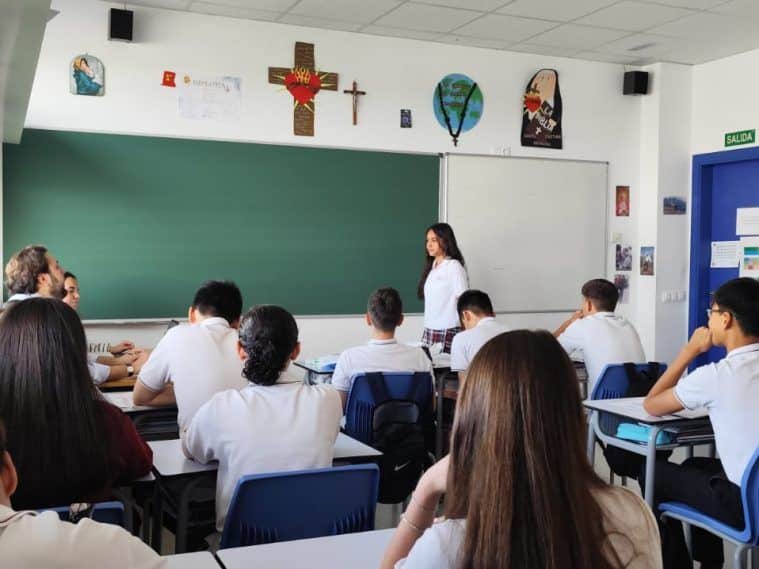Sure! Here’s the translation to American English:
—
In an educational environment where written assessments have been the norm, Juan Pablo II School in Parla is breaking the mold by integrating oral exams into its educational proposal. This innovative methodology goes beyond measuring students’ academic knowledge; it aims to develop communication and expression skills that are essential for the real world.
The school’s principal, Alfonso Die, emphasizes the importance of verbalization in learning, stating that “when a student speaks, they not only demonstrate what they know: they also discover themselves. Language structures thought.” In this regard, the school has decided to prioritize oral expression as a central axis in the educational and evaluative process.
Oral exams are used as a complementary tool, applied in various subjects before traditional written tests are conducted. The intention is not to replace one format with another but to enrich the learning process. This method also provides communication training that helps improve the student’s understanding and identify potential areas for improvement.
From early childhood education, students are introduced to oral expression through playful activities and storytelling. As they progress through elementary and secondary school, they learn public speaking and how to defend their ideas, helping them overcome stage fright. According to Elena García, the early childhood coordinator, “everything is part of a natural progression” in the development of interpersonal skills.
Rodrigo Bermejo, coordinator of secondary and high school, states that oral exams provide students with a new perspective on the content, becoming opportunities to practice critical thinking and expression skills. In his view, verbalized information has a greater impact and is retained more effectively in memory.
This approach also allows for fairer and more personalized assessments. Unlike written exams, which limit the teacher to grading a paper, oral evaluations facilitate direct dialogue, enabling the adjustment of difficulty levels. Bermejo highlights that it is possible to detect not only the student’s knowledge but also their way of thinking and arguing, which is much more revealing.
Many students also find in this new system an environment where they feel more comfortable sharing their knowledge, which not only enhances their confidence but also prepares them for real-world situations like interviews or presentations. These skills are especially useful in official certifications that the school offers.
Almudena Quintas, deputy director of early childhood and elementary education, emphasizes that “educating is not just about filling heads, but helping students find their voice.” In a world where effective communication is increasingly valuable, Juan Pablo II School in Parla is training its students from their earliest years of education with the firm belief that it is not only vital to know but also to know how to communicate.
—
Let me know if you need any adjustments!
via: MiMub in Spanish











